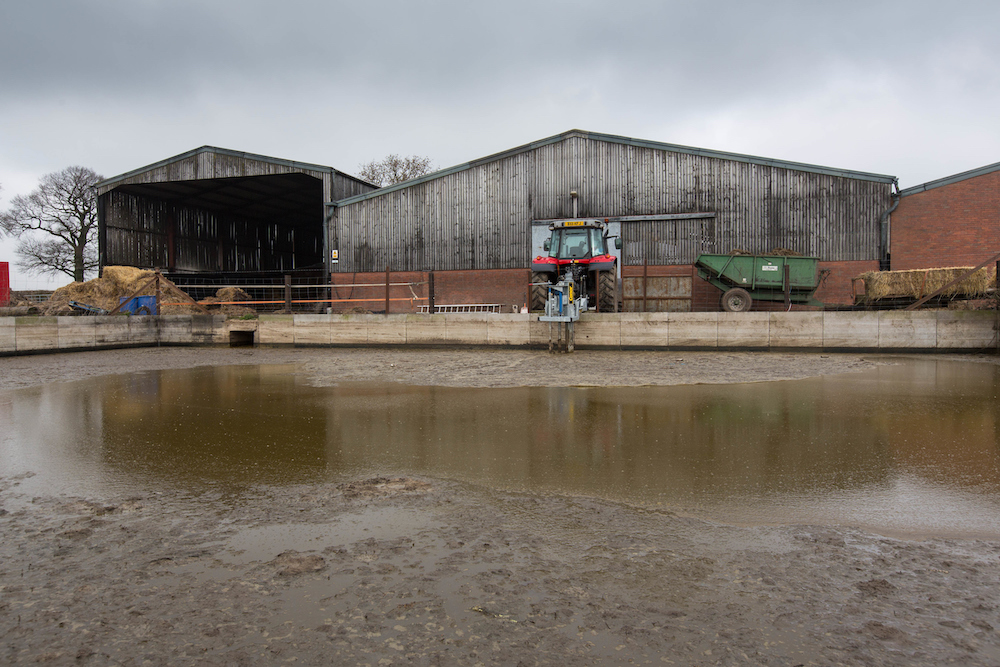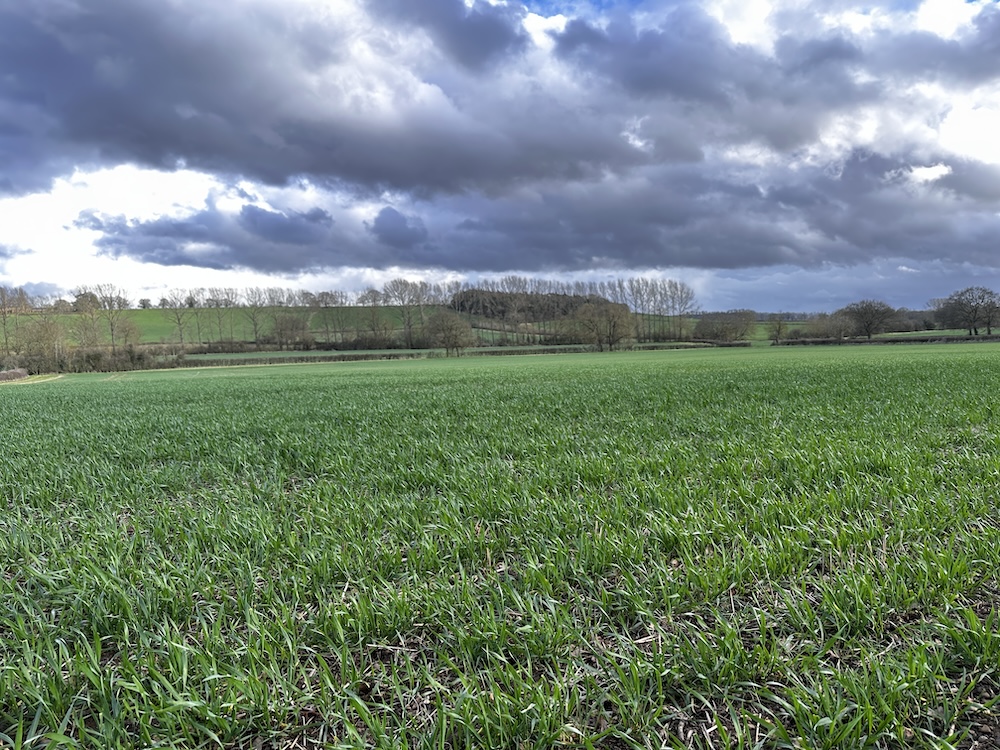
With just three weeks to go until applications for the slurry infrastructure grant closes, experts are advising farmers to consider their long-term plans before applying.
The grant application window opened in December, providing financial support to beef, dairy and pig farmers looking to replace or expand their existing slurry stores.
As the government looks to encourage more environmentally sustainable farming practices, it has recognised that farmers will need support to help them bring their slurry storage systems up to modern standards.
“Farmers are meant to have six months’ storage, but the government has realised that many don’t, because a store that size is expensive to build,” says Carter Jonas Associate Gillian Wilsher.
“So this is their way of providing a helping hand. However, if this is the carrot, then I imagine in five years’ time it may be replaced by a big stick if you don’t take them up on this offer.”
The grant is based on standard cost figures which have been calculated to represent approximately 50% of the market cost with grants ranging between £25,000 and £250,000.
The farm will need to at least match this funding and the grant will only contribute to the estimated cost of the slurry store required to provide storage for your current stocking rates for six months.
“If you have plans to increase your herd, it may be more cost effective to consider increasing the capacity of your storage now, even though the increased capacity will not benefit from the grant funding,” Ms Wilsher advises.
“Looking at the bigger picture and considering your long-term plans is essential.”
Ms Wilsher advises farmers to carefully consider where the storage will be located, taking in to account any plans for development in the future.
“Is it easy to contain should the tank fail or is there a watercourse nearby which could be polluted?” she adds. “The easiest place is not necessarily the most appropriate.”
“Consider whether your drainage networks are working efficiently to keep clean and dirty water separate. If your clean water drains are also entering the slurry store this will increase the capacity required significantly and water down your slurry, increasing spreading costs to apply the same amount of nutrients. A nutrient management plan must be in place based on the results of soil testing.”
“As the price of fertiliser has increased significantly, the value of slurry is also a significant consideration. Will third parties need access to your slurry store outlet?”
As the grants will be paid in arrears the business will need to fund the entire project initially.
“Given the substantial expenditure potentially involved it is important that the financing should be carefully considered, especially as we are now seeing interest rates rising,” Ms Wilsher says.
“It may be possible to fund some projects with capital or through the overdraft facilities for the short term while awaiting the grant reimbursement.
“For larger expenditure which cannot be covered by existing funds I would recommend speaking to your bank manager or local AMC agent at the earliest opportunity to discuss your options.
“Consideration should be given to the term of any loan as the cost of the finance may vary considerably. It may also be beneficial to consider the structure of loans to potentially split the borrowing between a fixed element and variable element which would enable the grant funding to be repaid in the short term without penalties and the farmer-funded element to be taken over a longer period with certainty of the interest rate.”
Demand for the scheme is expected to be high; if oversubscribed, Defra will prioritise those projects which will yield the biggest environmental benefits.
The selected farmers will then be invited to submit a full application, for which planning permission must be secured.
“It would therefore be worthwhile engaging with your planning consultant at an early stage as planning applications can take longer than expected, especially if the planning authority has limited knowledge of agricultural practices.”
ENDS
For further information, please contact:
Ben Pike, Eve Communications.
01327 438617 // 07832 168560 // ben@evecommunications.co.uk
Notes to editors
Carter Jonas
Carter Jonas LLP is a leading UK property consultancy. It is renowned for the quality of its service and expertise of its people. With a network of 33 offices across England and Wales, it employs more than 800 partners and staff.
It helps its clients sell, let, manage and add value to their properties, whether they be residential homes, farms and estates, development land, offices, industrial or retail buildings.




